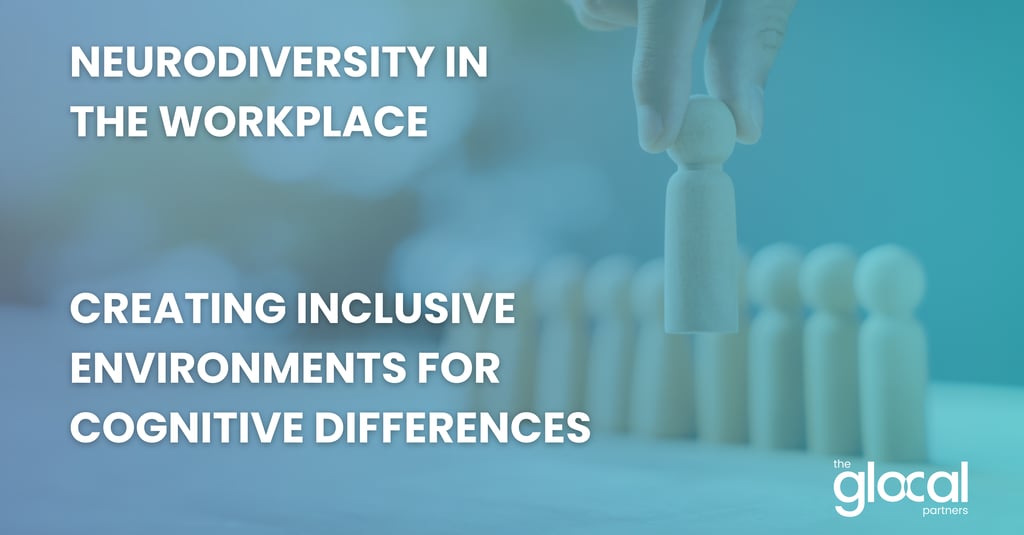Neurodiversity in the Workplace
Creating Inclusive Environments for Cognitive Differences
The Glocal Partners
5/20/20251 min read


Organizations are recognizing the value of neurodivergent talent and developing more inclusive workplace practices to support cognitive diversity.
Key Neurodiversity Inclusion Challenges:
Limited Awareness – According to SHRM's Workplace Diversity research (2023), only 28% of HR professionals report feeling confident in their understanding of neurodiversity.
Hiring Barriers – Harvard Business Review's Neurodiversity at Work study (2022) shows that traditional interview processes screen out 76% of neurodivergent candidates who could excel in the role.
Workplace Accommodations – According to the Job Accommodation Network's 2023 report, 62% of accommodations for neurodivergent employees cost absolutely nothing, yet many organizations perceive them as financially burdensome.
Effective Neurodiversity Inclusion Strategies:
Specialized Hiring Programs – Microsoft's Inclusive Hiring Research (2023) demonstrates that neurodiversity-focused recruitment initiatives achieve 92% retention rates and above-average productivity from neurodivergent talent.
Sensory-Friendly Workspaces – According to Deloitte's Human Capital Trends (2023), organizations creating sensory-friendly work environments report 36% higher engagement from all employees, not just neurodivergent staff.
Clear Communication Practices – CIPD's Neurodiversity at Work Guide (2023) shows that companies implementing structured communication protocols improve team performance by 29% across neurodivergent and neurotypical employees.
Key Takeaway
According to JP Morgan Chase's Autism at Work program analysis (2023), teams including neurodivergent members demonstrate 30% higher productivity in complex problem-solving tasks and 28% greater innovation output.
Book a Free Session with The Glocal Partners to discuss more details!
References:
SHRM. (2023). Workplace Diversity Research. https://www.shrm.org/hr-today/trends-and-forecasting/research-and-surveys/Pages/Diversity-Inclusion.aspx
Harvard Business Review. (2022). Neurodiversity at Work Study. https://hbr.org/2022/05/neurodiversity-as-a-competitive-advantage
Job Accommodation Network. (2023). Annual Report. https://askjan.org/publications/JANs-Annual-Reports.cfm
Microsoft. (2023). Inclusive Hiring Research. https://www.microsoft.com/en-us/diversity/inside-microsoft/cross-disability/neurodiversityhiring
Deloitte. (2023). Human Capital Trends. https://www2.deloitte.com/us/en/insights/focus/human-capital-trends.html
CIPD. (2023). Neurodiversity at Work Guide. https://www.cipd.co.uk/knowledge/fundamentals/relations/diversity/neurodiversity-work
JP Morgan Chase. (2023). Autism at Work Program Analysis. https://www.jpmorganchase.com/impact/people/jobs-and-skills/autism-at-work
theglocals@theglocalpartners.com
© 2026. All rights reserved.
This website is Powered by: The Glocal Partners LLC
